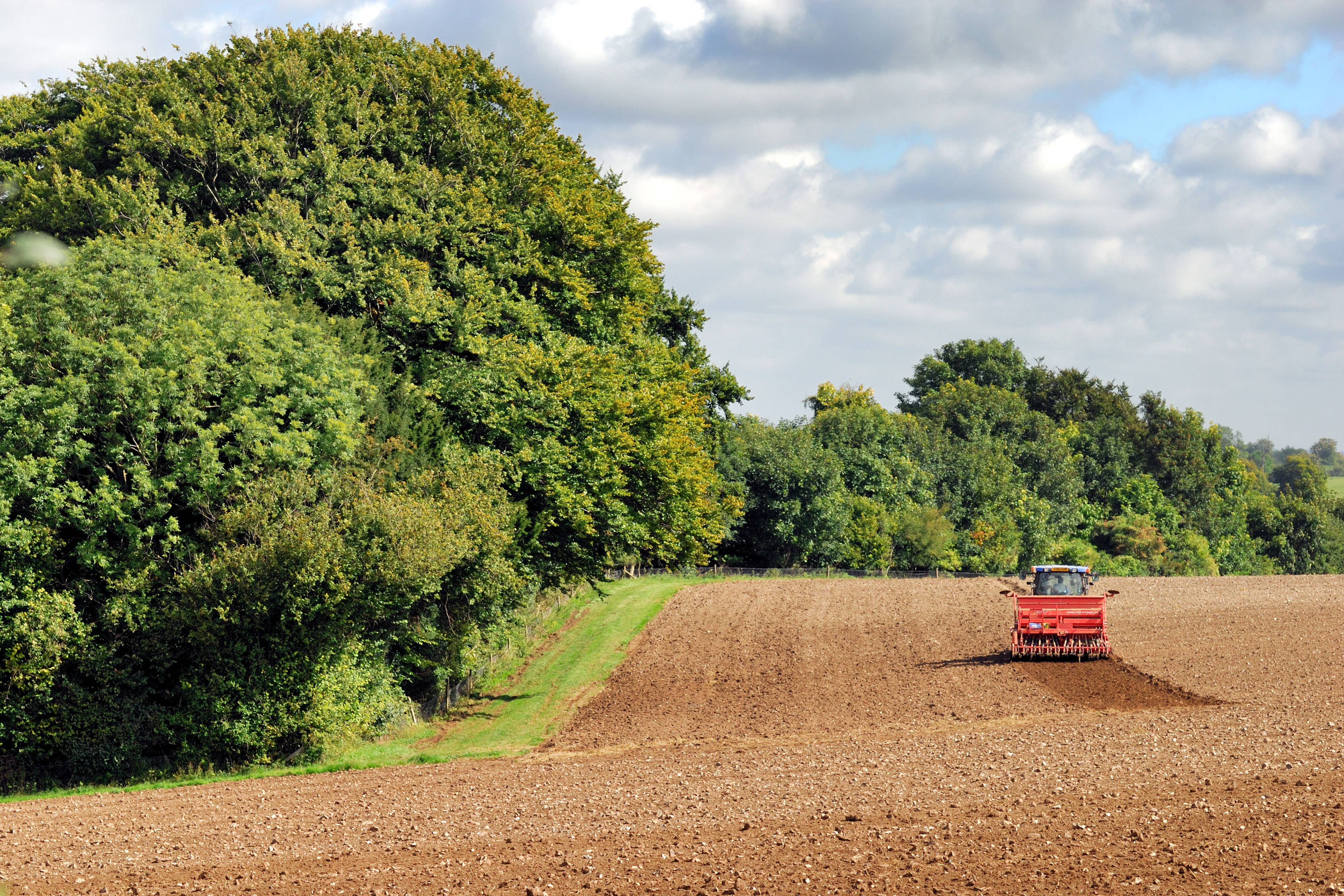Red Tractor officially axes green farming scheme amid backlash from farmers
The British food assurance body confirmed it was discontinuing the Greener Farms Commitment.

Red Tractor has axed its green farming assurance standard after facing a backlash from farmers.
The British food assurance body said it would discontinue the Greener Farms Commitment (GFC), which had been developed as an optional standard for farms that met certain environmental criteria.
Red Tractor had already confirmed that the GFC would not launch in April, as originally planned.
But the organisation said on Friday that its Assured Food Standards (AFS) board had agreed to axe the module entirely after considering the impacts it would have on many farmers across the UK.
The GFC had sparked a fierce debate over the last few months, with many farmers fearing that the voluntary standard would eventually evolve into a requirement for market access.
There were also concerns that the scheme would force farmers to foot the bill for implementing sustainability measures on behalf of supermarkets.
Christine Tacon, chair of Red Tractor, said that while the module had been conceived with the best of intentions, errors had been made.
We will only be involved in future environmental standards when all constituencies across the UK food and farming chain, by sector, ask us to and with full consultation
“We take responsibility for those issues and are sorry. We hope that by dropping the module, we can close the door on this chapter and move forward,” she said.
“We will only be involved in future environmental standards when all constituencies across the UK food and farming chain, by sector, ask us to and with full consultation.”
Following the farmers’ reaction, the National Farmers’ Union (NFU) had launched an independent governance review into Red Tractor, which found the assurance body was facing an “existential crisis” due to a lack of support from farmers.
Red Tractor said the AFS board accepted the conclusions of the review and confirmed its commitment to implement all the recommendations.
We will act now to improve our communications to farmers, including the transparency of our operations, purpose and benefits and we will strengthen our stakeholder engagement
Ms Tacon added that the review “sent a clear message about the frustration farmers are feeling”.
“We will act now to improve our communications to farmers, including the transparency of our operations, purpose and benefits and we will strengthen our stakeholder engagement,” she said.
Reacting to the news, Tom Upton, a farmer from Peasmarsh, East Sussex, said: “From my point of view, I think there’s a place for sustainable, sensible discussion around the environment.
“I wouldn’t necessarily enforce that through the Red Tractor. I think schemes like the Countryside Stewardship and the Sustainable Farm Incentive, provide that in a much more targeted, focused way for the farmer.”
Given that the industry doesn’t seem to want to prove its green credentials to its customers, I fully understand the reasoning behind the Red Tractor decision. I only hope that the result isn’t a mass of audits being completed for each of the retailers independently
Leicestershire farmer Joe Stanley welcomed the news, adding: “Farmers absolutely acknowledge the imperative to drive environmental sustainability in food and farming, but this must be undertaken in partnership with all parts of the food chain sharing the costs and responsibilities.
“The GFC would have seen farmers shoulder them all, passing the benefits on to retailers and processors for free.
“We now need to discuss how we can tackle the challenges of a more sustainable food system in partnership, not dictated by the supermarkets at the point of a commercial gun.”
But Andrew Blenkiron, director at Euston Estate in Suffolk, said he was “disappointed” by the decision.
“Given that the industry doesn’t seem to want to prove its green credentials to its customers, I fully understand the reasoning behind the Red Tractor decision,” he said.
This will not stop retailers working with their farmers to improve sustainability at a farm level and demonstrating this commitment to their consumers and stakeholders
“I only hope that the result isn’t a mass of audits being completed for each of the retailers independently.
“My biggest fear is that others from around the world undermine our valuable markets.”
Meanwhile, Andrew Opie, director of food and sustainability at the British Retail Consortium, said: “It is disappointing that we have not been able to make progress with the agreed AFS strategy.
“However, this will not stop retailers working with their farmers to improve sustainability at a farm level and demonstrating this commitment to their consumers and stakeholders.
“Progressive farmers are already engaging with the issues consumers care about, such as nature and biodiversity, and we want to go further, especially in the beef and sheep sectors.”
Bookmark popover
Removed from bookmarks